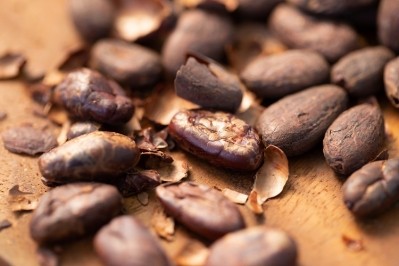WNWN completes Mondelēz innovation program with plans to expand its chocolate-free line

CoLab Tech’s 12-week program, which is led by Mondelēz’s innovation and venture hub SnackFutures, offers interactive experiences, mentorship and access to Mondelēz's global network of partners to address barriers in sustainability and food and process technologies. WNWN was one of nine international start-ups chosen for CoLab Tech and the only alternative chocolate company selected.
“If we want to have a positive impact on the global food supply chain, then we have to work with the biggest players [and] work at scale. … If we can start collaborating, communicating with these vast huge companies, and at the very start of our startup journey, then we will be able to have that impact much more quickly,” he said.
Earlier this year, WNWN Food Labs raised $5.6m to scale up manufacturing, expand its team and prepare for retail launch in the UK. The round was led by PeakBridge, a foodtech VC firm investing in early-stage and Series A climate-and health-focused companies, including participation from Geschwister Oetker Beteiligungen Group via its subsidiary Martin Braun-Gruppe, Mustard Seed Maze, PINC, Investbridge AgriTech and HackCapital.
With the CoLab Tech program completed, “this is really where the journey starts,” Drain expressed of the brand’s goals in scaling production for its chocolate alternative portfolio. Previously, the company launched two products via DTC channels: dark choc thins and Waim! bar, which were met with high demand.
WNWN’s plans to build an ethical and sustainable cocoa supply chain
Using a proprietary fermentation process using barley and carob as the source, WNWN’s cocoa-free chocolate “tastes, melts, snaps and bakes just like chocolate,” with a low-sugar formula that is vegan, caffeine-free, gluten-free, palm-oil free and safe for dogs as it does not contain theobromine. The UK-based company sources its barley from the British Isle and carob around the Mediterranean from Italy, Spain and Portugal.
Drain noticed comparable aroma and flavor compounds shared between chocolate and other ingredients, tracing back to the initial observation when he detected cocoa notes while steaming potatoes.
“If you look in other places in nature, in whole ingredients … you can find sources or the precursors of those ingredients. That involves looking at and understanding the genetics of ingredients like barley and carob and the macromolecules of proteins, carbohydrates, etc.”
Driven by creating a more resilient and sustainable cocoa supply chain amidst the EU’s ban on imports like coffee, cocoa and palm oil linked to deforestation, Drain explained WNWN’s goal is to offer a more ethical and climate-friendly chocolate that produces 80% less carbon emissions than conventional chocolates.
“To recap with chocolate, the big issues are child slavery, about 1.5m child slaves in West Africa are where tw- thirds of the world’s cocoa comes from. Also, deforestation in those areas and the carbon footprint that produces – chocolate has a higher carbon footprint than things like chicken or cheese … so part of our MO is that we want to serve as a platform to educate consumers around this,” Drain elaborated.
He continued, noting that these problems within the industry “exist in West Africa because you have two very small countries in a very small area where all of this cocoa comes from, but 12 to 20 global multinational companies generate billions and billions of dollars of revenue for a product that they can only get from this small part of the world.”
Drain emphasized WNWN’s focus is to provide an alternative and “relieve that grip that those multinationals have to that part of the world,” and helping establish “more independence for these cocoa farmers.”




















